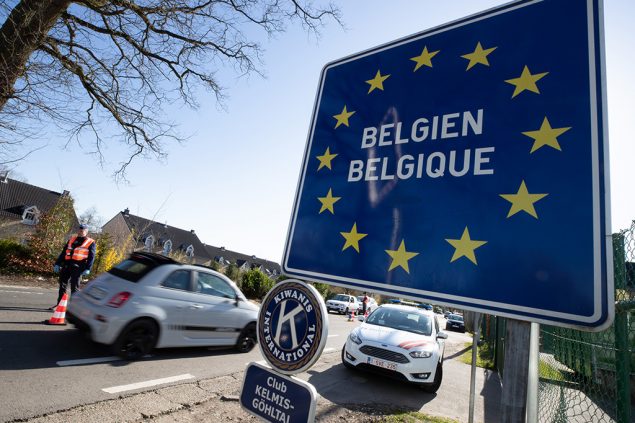Germany has decided to keep its borders with Belgium and the Netherlands open for traffic, despite the new coronavirus (Covid-19) crisis.
“Health care only works across borders,” said Armin Laschet, German Minister-President of the North Rhine-Westphalia state, in a video message on Twitter. "Between us, the Netherlands and Belgium, there will be no border controls," he added.
„Der Kampf hat sich gelohnt, die Grenze bleibt offen - ein guter Tag für Nordrhein-Westfalen!“ Ministerpräsident @ArminLaschet begrüßt die Entscheidung des Bundes, die Grenzen zu den #Niederlanden ?? und #Belgien ?? nicht zu schließen. ??#gemeinsamgegencorona #nrwkanndas pic.twitter.com/OForogpHYs
— Staatskanzlei NRW (@landnrw) April 6, 2020
Translation: "The fight was worth it, the border remains open - a good day for North Rhine-Westphalia!" Minister-President Armin Laschet welcomes the decision of the federal government not to close the borders to the Netherlands and Belgium."
Laschet also referred to a hospital in the German city of Aachen, where both German and Dutch coronavirus patients are being treated.
The decision to keep the borders with Belgium and the Netherlands open for traffic is good news for the business world, as companies risked getting caught in traffic jams if border checks would have been reintroduced. However, people without "urgent reasons" will not be allowed to enter the country, according to Laschet.
Earlier, the German Federal Minister of the Interior, Horst Seehofer, had proposed to reduce traffic at the borders to help fight the spread of the virus, and wanted to close the borders between Germany and Belgium, the Netherlands, Poland, and the Czech Republic. The German borders with France, Austria, Luxembourg, Denmark and Switzerland had already been closed mid-March.
Related News
- Temporarily unemployed because of coronavirus: What now?
- Crossing times at internal borders back to normal in most cases
- Denmark announces easing of coronavirus lockdown
German Chancellor Angela Merkel said that traffic data show that there are hardly any day-trippers on the road. and Dutch Prime Minister Mark Rutte stated that “traffic at the border coming from Germany decreased by 70%" in the Netherlands.
According to the government's measures in Belgium, all non-essential trips are forbidden, both on the country's territory and across the border.
Maïthé Chini
The Brussels Times

